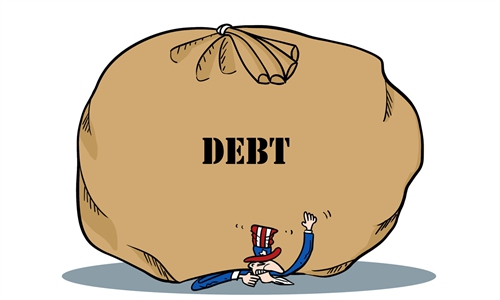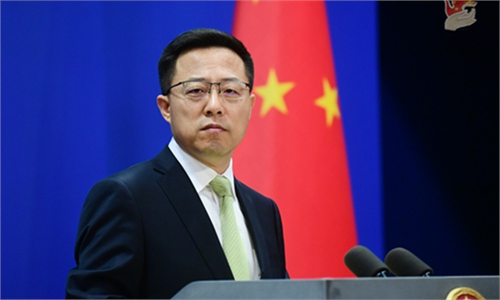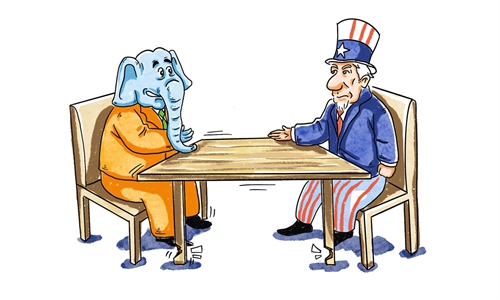COMMENTS / EXPERT ASSESSMENT
Supply chain woes product of American economic hegemony

Illustration: Xia Qing/Global Times
Against the backdrop of a high inflation crisis, a serious supply chain tension has become an acute issue in the US with a swath of cargo ships stranded in ports while Americans may face empty shelves on the cusp of the holiday season. So it's not surprising that Transportation Secretary Pete Buttigieg predicted during a recent CNN interview that supply chain issues will continue into next year.Citing reasons of an imbalance between supply and demand, as well as infrastructure problems, Buttigieg also took the chance to push the Biden administration's infrastructure spending bill which has stalled in House of Representatives and faces significant surgery if there is any chance of becoming law.
Buttigieg might be out of his political consideration that transport is one of the sectors which could face a budgetary reduction. However it is the underlying reasons for the current supply chain crisis facing the US that merit closer analysis - key of which is the nation's long-standing trade policy change which could be traced back to before the Trump era.
The US, after decades of relocating its industrial capacity, has been attempting to build up production facilities at home. It is clearly an unrealistic agenda given the US' current industrial structure, and rebuilding new ones from scratch is anything but an easy task.
Such interference over the development of global value chain goes against economic rules and has caused havoc throughout global supply chains, including in the US. The sudden onslaught of the novel coronavirus unsurprisingly weighed on the risks facing the American supply chain.
In addition, by provoking a tariffs war with China from 2018 onwards, the US has failed to post any meaningful wins with American consumers and businesses paying higher prices and workers losing jobs, which aggravated the burden on the US' supply chain. Per one estimation by the US-China Business Council (USCBC) in January, the trade war between the world's two largest economies had cost 245,000 jobs in the US.
According to a study by Oxford Economics in January this year, the cost of the trade war for the US was around 0.5 percent of GDP in 2018-2019 and $88 billion in real household income.
The current supply-demand imbalance was also driven by soaring consumption demand as the COVID slowly rolls into rear-view. And apparently, the US' increasingly strict policies toward legal migration over the past few years have created a workforce shortage, such as within logistic related industries.
By stabilizing market expectations, loosening immigrant restrictions, and adjusting logistics arrangements, the US government could ease the current supply chain bottlenecks. More importantly, the skewed "America first" policy should be terminated immediately.
The process of globalization, based on comparative advantages of each economy, has developed for decades, lowering costs and increasing efficiency of producers around the world. The US' hegemonic manipulation over global industrial chain has added more political risks to business operations, which clearly is not a sustainable path.
Recently, the US Trade Representative Katherine Tai floated the term "recoupling" when it comes to the country's economic and trade relations with China. More pain than gain has been felt by the US as far as its ill-fated trade war is concerned. Though wrestling will continue for some time when it comes to China-US relations, "recoupling" is always better than "decoupling", and "recoupling" will provide the chance for the two sides to learn how to engage with each other and seek cooperation.
The author is the adjunct fellow at the Center for International Security and Strategy, Tsinghua University, China Forum expert, and a senior research fellow at the International Institute of China Construction Bank. bizopinion@glboaltimes.com.cn




